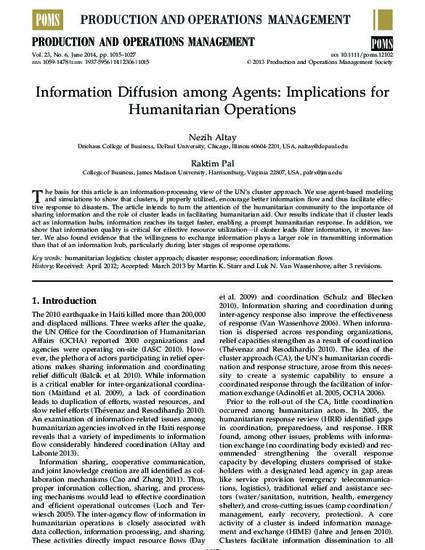
Article
Information diffusion among agents: implications for humanitarian operations
Production and Operations Management
(2014)
Abstract
The basis for this article is an information-processing view of the UN’s cluster approach. We use agent-based modeling and simulations to show that clusters, if properly utilized, encourage better information flow and thus facilitate effective response to disasters. The article intends to turn the attention of the humanitarian community to the importance of sharing information and the role of cluster leads in facilitating humanitarian aid. Our results indicate that if cluster leads act as information hubs, information reaches its target faster, enabling a prompt humanitarian response. In addition, we show that information quality is critical for effective resource utilization—if cluster leads filter information, it moves faster. We also found evidence that the willingness to exchange information plays a larger role in transmitting information than that of an information hub, particularly during later stages of response operations.
Disciplines
Publication Date
2014
Citation Information
Nezih Altay and Raktim Pal. "Information diffusion among agents: implications for humanitarian operations" Production and Operations Management Vol. 23 Iss. 6 (2014) p. 1015 - 1027 Available at: http://works.bepress.com/nezih_altay/22/
